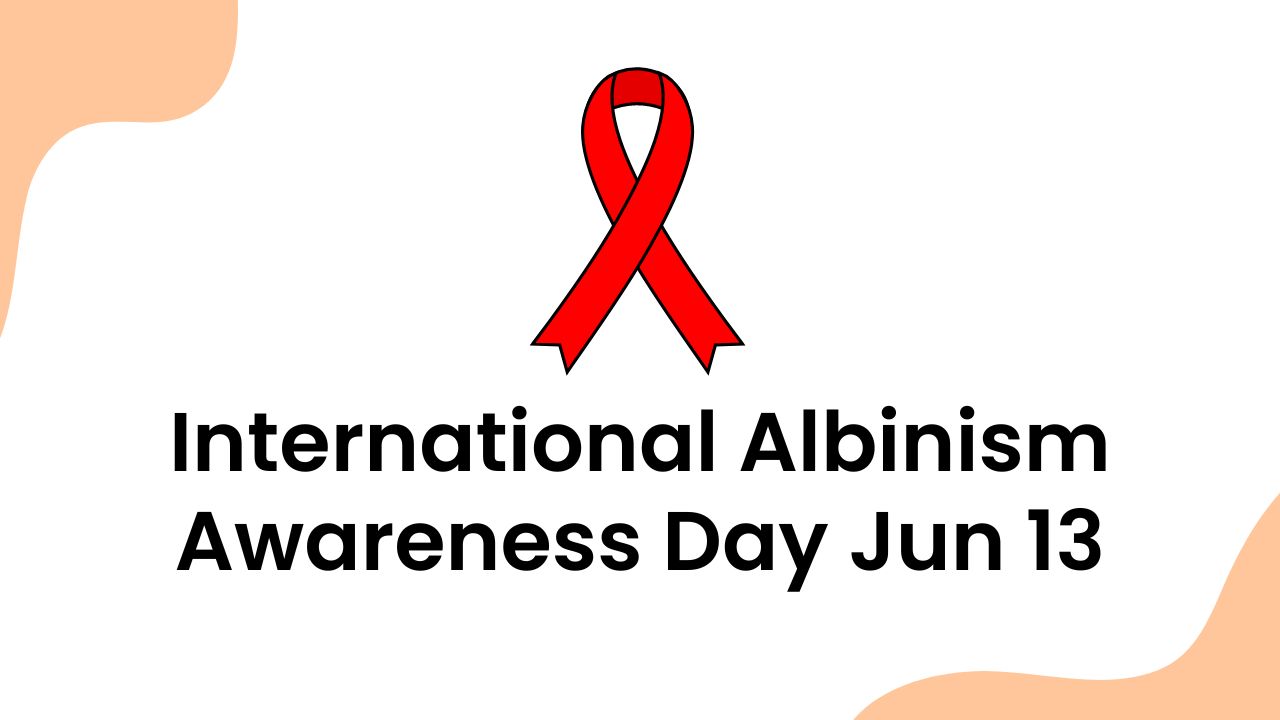International Albinism Awareness Day Jun 13: Celebrating Diversity and Promoting Understanding
Introduction
Albinism is a genetic condition characterized by the absence or reduction of pigment in the skin, hair, and eyes. International Albinism Awareness Day, observed on June 13th each year, aims to raise awareness about this rare condition, promote understanding, and advocate for the rights and well-being of individuals with albinism. In this article, we will delve into the significance of International Albinism Awareness Day Jun 13 and explore various aspects related to albinism, including its causes, challenges faced by individuals with albinism, and initiatives to support and empower them.
What is Albinism?
Albinism is a congenital disorder that affects people of all ethnic backgrounds worldwide. It is caused by a genetic mutation that leads to a lack or absence of melanin, the pigment responsible for coloring the hair, skin, and eyes. As a result, individuals with albinism often have pale or white skin, light-colored hair, and light-sensitive eyes. Albinism can occur in different forms, such as oculocutaneous albinism (affecting the eyes, hair, and skin) and ocular albinism (primarily affecting the eyes).
International Albinism Awareness Day Jun 13: Shedding Light on Albinism
International Albinism Awareness Day, observed annually on June 13th, serves as a platform to raise global awareness about albinism and address the misconceptions and stigmas associated with the condition. This day provides an opportunity to celebrate the diversity and uniqueness of individuals with albinism while promoting inclusivity, understanding, and equal opportunities for all.
The Significance of June 13th: Commemorating a Historic Event
June 13th holds a special significance in the history of albinism advocacy. It was on this day in 2013 that the United Nations (UN) General Assembly adopted a resolution establishing International Albinism Awareness Day. This landmark resolution marked a crucial step towards recognizing the rights and needs of individuals with albinism on a global scale.
Creating Awareness: Why Does Albinism Need Attention?
Albinism is often misunderstood, and individuals living with this condition face various challenges in their daily lives. Raising awareness about albinism is crucial to dispel myths and misconceptions, combat discrimination and social exclusion, and ensure the well-being and inclusion of individuals with albinism in all aspects of society.
FAQs about Albinism and International Albinism Awareness Day Jun 13
- Q: What causes albinism?
- Albinism is primarily caused by genetic mutations inherited from parents who carry the albinism gene. These mutations disrupt the production of melanin, resulting in the characteristic features of albinism.
- Q: Is albinism a common condition?
- No, albinism is considered a rare condition. The prevalence of albinism varies across different populations, but it is estimated to affect approximately 1 in 20,000 individuals worldwide.
- Q: Are individuals with albinism visually impaired?
- Yes, many individuals with albinism have visual impairments. The lack of melanin in the eyes can lead to various vision problems, such as reduced visual acuity, nystagmus (involuntary eye movement), and sensitivity to light.
- Q: Can albinism be treated or cured?
- Albinism itself cannot be cured. However, individuals with albinism can benefit from visual aids, such as prescription glasses or contact lenses, to improve their vision. They also require adequate sun protection to prevent skin damage from UV radiation.
- Q: What are the social challenges faced by individuals with albinism?
- Individuals with albinism often experience social stigma, discrimination, and marginalization. They may face barriers to education, employment, and healthcare. International Albinism Awareness Day aims to address these challenges and promote inclusivity.
- Q: How can I show support for International Albinism Awareness Day Jun 13?
- There are various ways to show support. You can participate in local events and activities organized to raise awareness about albinism. Sharing information on social media platforms using relevant hashtags (#IAAD) is also a simple yet effective way to spread awareness.
Promoting Inclusion: Initiatives and Organizations
Numerous organizations and initiatives around the world work tirelessly to support and empower individuals with albinism. They strive to provide education, healthcare, and advocacy services while promoting equal rights and opportunities. Some notable organizations include:
- Under the Same Sun (UTSS)
- UTSS is an international NGO that advocates for the rights of people with albinism. They focus on addressing the challenges faced by individuals with albinism in areas such as education, health, and social inclusion.
- Albinism Society of Kenya (ASK)
- ASK is a Kenyan-based organization dedicated to creating awareness, providing support, and advocating for the rights of individuals with albinism. They work to combat discrimination and improve the quality of life for people with albinism in Kenya.
- NOAH – National Organization for Albinism and Hypopigmentation
- NOAH is a U.S.-based organization that provides support, information, and resources to individuals with albinism and their families. They also organize events and conferences to raise awareness about albinism and promote inclusivity.
Conclusion
International Albinism Awareness Day Jun 13 serves as a reminder of the importance of embracing diversity and promoting inclusivity in our society. By raising awareness about albinism, dispelling myths and misconceptions, and supporting initiatives that empower individuals with albinism, we can work towards creating a more inclusive and understanding world. Let us celebrate the uniqueness and resilience of individuals with albinism on this special day and beyond.
